Protein is critical to repairing cells and tissues; it also helps stabilize blood sugar and quell hunger. But not all proteins are created equal. You need to be adding quality, lean protein to your plate to most effectively lose weight, get stronger, and improve overall health.
"For example, fatty cuts of meat like bacon contain protein, but they are also packed with artery-clogging saturated fat, sodium, and other unhealthy components that not only crowd out some of the protein that is found in leaner animal products, but that also negatively impact health," say Lyssie Lakatos, RD, CDN who along with Tammy Lakatos Shames, RD, CDN, make up the Nutrition Twins and are members of the Eat This, Not That! medical review board. "The highest quality animal proteins provide beneficial nutrients without these negative factors."
Animal proteins contain the nine amino acids that are called "essential" because they are critical for building proteins, hormones, and neurotransmitters and our bodies cannot produce them; they must come from our food. But while all animal proteins contain the essential amino acids, there are also some plant proteins that do, as well. And while other sources of plant protein may not provide you with all nine, they can still be a part of a healthy, varied diet that includes many types of foods with different nutrients.
Read on for the seven best sources of high-quality proteins—both animal- and plant-based—and for more on how to eat healthy, don't miss The #1 Best Protein To Eat Every Day, Says Dietitian.

"Eggs are always referred to as the best protein," says s Julie Upton, MS, RD, CSSD, another registered dietitian on our medical expert board. "Eggs are the gold standard because they have the most bioavailable amino acids." Eggs score 100 in biological value, a measure of how efficiently the body utilizes protein consumed in the diet. Beef, for comparison, scores 80. Only whey protein scores higher with a biological value of 104. "Low-fat dairy foods, seafood and lean poultry are other high-quality proteins," says Upton. Check out our review of the 7 Best Protein Powders for Stronger Muscles.
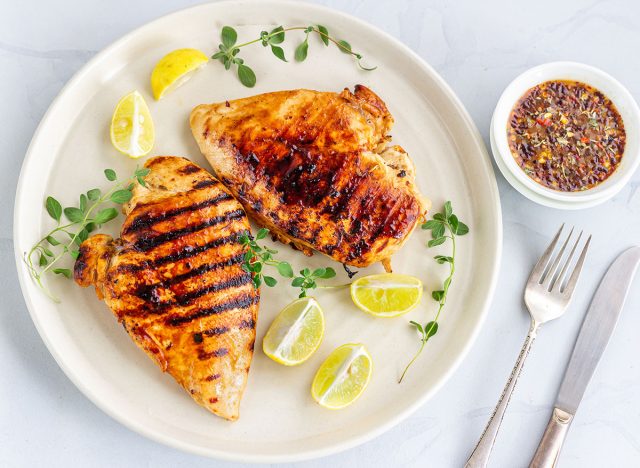
Minus the skin, chicken and turkey breast "are ideal for building and repairing tissues and maintaining lean muscle, as they're naturally low in saturated fat and sodium," says Tammy Lakatos Shames. "[Lean poultry breast] is a good source of B vitamins, which are essential for DNA synthesis, energy production and for brain health and it contains the antioxidant selenium, which is important for immune and thyroid health." Research suggests selenium may hold promise for cancer immunity.
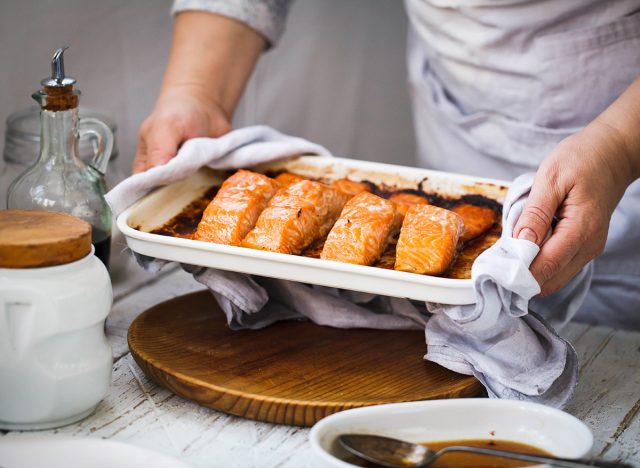
These fatty fish are some of the highest quality sources of protein because they are packed with protein and are naturally low in sodium and saturated fat (one gram of saturated fat and 30 grams of protein in four ounces of salmon), while being excellent sources of omega-3 fats, a type of fat that's anti-inflammatory and especially good for the heart, say The Nutrition Twins. "Salmon may also provide weight loss benefits as research has shown it helps lower fasting insulin levels," they say. "Higher insulin levels and inflammation are both linked to weight gain."
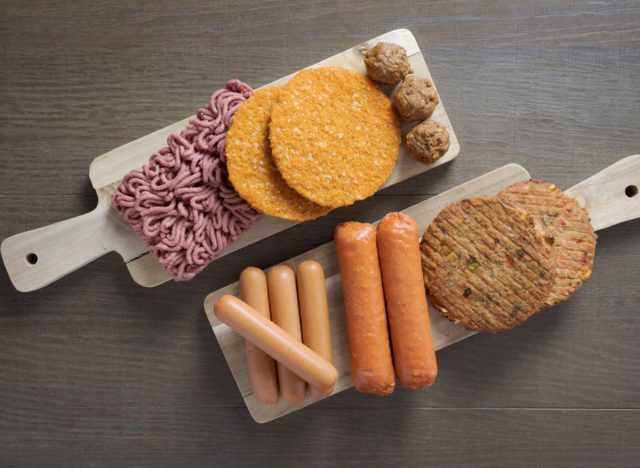
Some plant proteins contain all nine essential amino acids, but most do not. "If you're vegan or vegetarian, it's really important to eat a varied diet so you cover your bases," say The Nutrition Twins.

Made from soaking, grinding and crushing soybeans, tofu is a complete protein, containing all nine essential amino acids, packing in up to 10 grams of protein per half-cup serving of the firm variety. Tofu is an excellent source of iron and calcium and is rich in isoflavones, which appear to help protect against heart disease, osteoporosis, and some cancers.
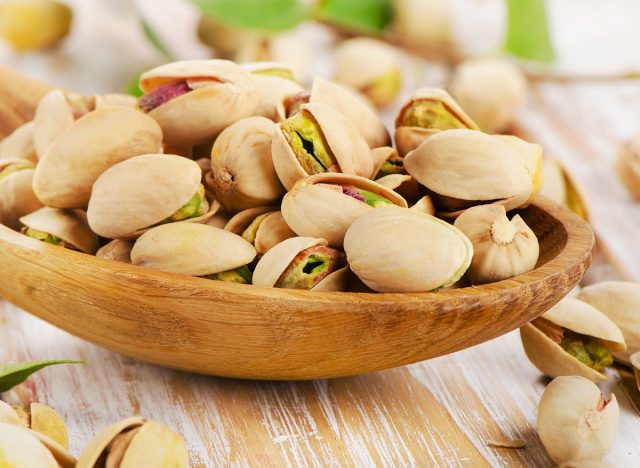
Another complete protein, pistachios are one of the snack nuts highest in protein content. They're also a good source of fiber and unsaturated fat. All three nutrients combine to make pistachios a powerful appetite suppressant that can keep you from overeating.
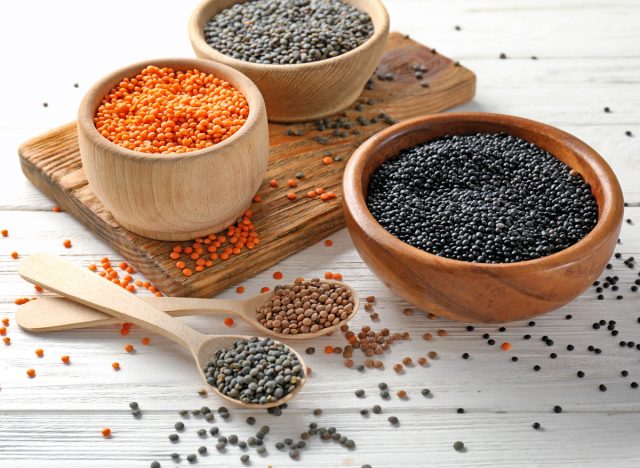
Lentils lack the essential amino acids cysteine and methionine, but don't let that stop you from working them into your meals. They are a terrific source of plant protein. One cup provides about 18 grams of protein and 15 grams of cholesterol-lowering fiber, nearly a third of your daily fiber needs. "They're packed with procyanidin and flavanols, which are potent antioxidants with anti-inflammatory and neuroprotective effects," say The Nutrition Twins. Just be sure to eat a variety of plant proteins so you supply your body with all the essential aminos it needs.
Here are some other ways to eat more plant protein, including some great recipes.
Eat This, Not That!
7 Highest Quality Proteins To Eat Every Day, Say Dietitians — Eat This Not That - Eat This, Not That
Read More


No comments:
Post a Comment